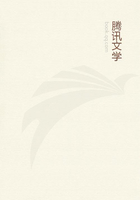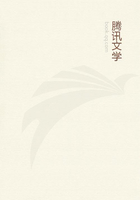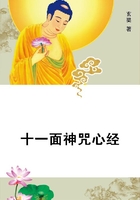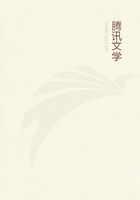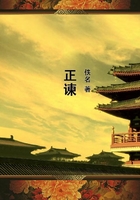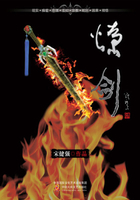The person who bore the chief part in framing the resolution, and in defending it, was Sir John Dalrymple, who had recently held the high office of Lord Advocate, and had been an accomplice in some of the misdeeds which he now arraigned with great force of reasoning and eloquence. He was strenuously supported by Sir James Montgomery, member for Ayrshire, a man of considerable abilities, but of loose principles, turbulent temper, insatiable cupidity, and implacable malevolence. The Archbishop of Glasgow and Sir George Mackenzie spoke on the other side: but the only effect of their oratory was to deprive their party of the advantage of being able to allege that the Estates were under duress, and that liberty of speech had been denied to the defenders of hereditary monarchy.
When the question was put, Athol, Queensberry, and some of their friends withdrew. Only five members voted against the resolution which pronounced that James had forfeited his right to the allegiance of his subjects. When it was moved that the Crown of Scotland should be settled as the Crown of England had been settled, Athol and Queensberry reappeared in the hall. They had doubted, they said, whether they could justifiably declare the throne vacant. But, since it had been declared vacant, they felt no doubt that William and Mary were the persons who ought to fill it.
The Convention then went forth in procession to the High Street.
Several great nobles, attended by the Lord Provost of the capital and by the heralds, ascended the octagon tower from which rose the city cross surmounted by the unicorn of Scotland.304 Hamilton read the vote of the Convention; and a King at Arms proclaimed the new Sovereigns with sound of trumpet. On the same day the Estates issued an order that the parochial clergy should, on pain of deprivation, publish from their pulpits the proclamation which had just been read at the city cross, and should pray for King William and Queen Mary.
Still the interregnum was not at an end. Though the new Sovereigns had been proclaimed, they had not yet been put into possession of the royal authority by a formal tender and a formal acceptance. At Edinburgh, as at Westminster, it was thought necessary that the instrument which settled the government should clearly define and solemnly assert those privileges of the people which the Stuarts had illegally infringed. A Claim of Right was therefore drawn up by the Twenty Four, and adopted by the Convention. To this Claim, which purported to be merely declaratory of the law as it stood, was added a supplementary paper containing a list of grievances which could be remedied only by new laws. One most important article which we should naturally expect to find at the head of such a list, the Convention, with great practical prudence, but in defiance of notorious facts and of unanswerable arguments, placed in the Claim of Right. Nobody could deny that prelacy was established by Act of Parliament. The power exercised by the Bishops might be pernicious, unscriptural, antichristian but illegal it certainly was not; and to pronounce it illegal was to outrage common sense.
The Whig leaders however were much more desirous to get rid of episcopacy than to prove themselves consummate publicists and logicians. If they made the abolition of episcopacy an article of the contract by which William was to hold the crown, they attained their end, though doubtless in a manner open to much criticism. If, on the other hand, they contented themselves with resolving that episcopacy was a noxious institution which at some future time the legislature would do well to abolish, they might find that their resolution, though unobjectionable in form, was barren of consequences. They knew that William by no means sympathized with their dislike of Bishops, and that, even had he been much more zealous for the Calvinistic model than he was, the relation in which he stood to the Anglican Church would make it difficult and dangerous for him to declare himself hostile to a fundamental part of the constitution of that Church. If he should become King of Scotland without being fettered by any pledge on this subject, it might well be apprehended that he would hesitate about passing an Act which would be regarded with abhorrence by a large body of his subjects in the south of the island. It was therefore most desirable that the question should be settled while the throne was still vacant. In this opinion many politicians concurred, who had no dislike to rochets and mitres, but who wished that William might have a quiet and prosperous reign. The Scottish people,--so these men reasoned,--hated episcopacy. The English loved it. To leave William any voice in the matter was to put him under the necessity of deeply wounding the strongest feelings of one of the nations which he governed.
It was therefore plainly for his own interest that the question, which he could not settle in any manner without incurring a fearful amount of obloquy, should be settled for him by others who were exposed to no such danger. He was not yet Sovereign of Scotland. While the interregnum lasted, the supreme power belonged to the Estates; and for what the Estates might do the prelatists of his southern kingdom could not hold him responsible. The elder Dalrymple wrote strongly from London to this effect, and there can be little doubt that he expressed the sentiments of his master. William would have sincerely rejoiced if the Scots could have been reconciled to a modified episcopacy.
But, since that could not be, it was manifestly desirable that they should themselves, while there was yet no King over them, pronounce the irrevocable doom of the institution which they abhorred.305The Convention, therefore, with little debate as it should seem, inserted in the Claim of Right a clause declaring that prelacy was an insupportable burden to the kingdom, that it had been long odious to the body of the people, and that it ought to be abolished.

